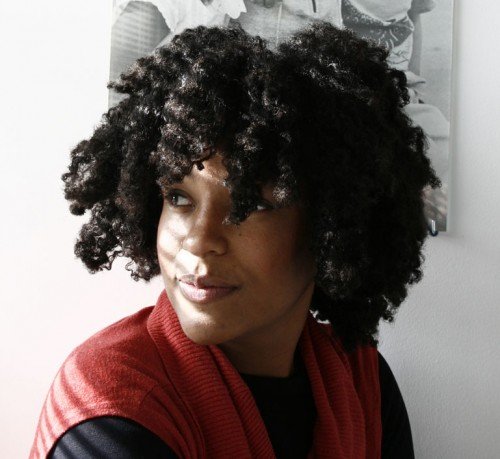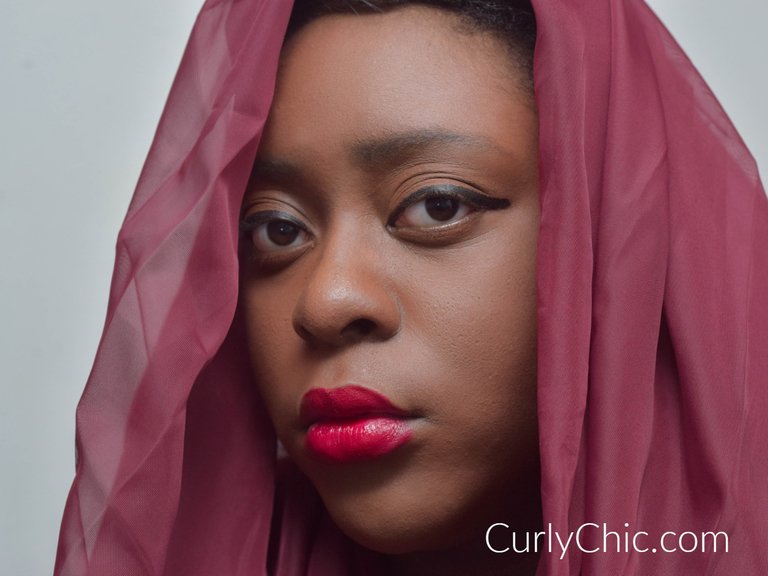By: Veronica Miller
Some how a movement that began as a way to encourage black women to be free with their hair suddenly turned hostile to women doing just that.
It’s been so long since I’ve blogged about natural hair, sometimes I forget there are rules to this whole thing. Like Natural Hair Rule #157: If you’re of mixed race, and not a “fully black” woman, you’re not allowed to say you “big-chopped.”
I was reminded of this rule recently when the popular natural hair blog,CurlyNikki.com, breathlessly reposted pictures of Alicia Keys’ new, super-short hair cut with the headline, “Alicia Keys Big-Chopped!”
It wasn’t long before Nikki received this comment from a reader:
“THIS is NOT considered a BIG CHOP! Alicia is of mixed races. She has ALWAYS been natural. This will contribute to the uneducated (@natural hair) who THINK when they. Do BIG CHOP their hair will look like this & be THIS texture. NIKKI PLEASE CHANGE TITLE!! It should say great hair cut or something.”
Oh. OK.
And so it goes in parts of the natural hair community — arbitrary rules decreed by readers, commenters and message board members. Don’t call it a “big chop” if you’re “mixed,” i.e., multi-racial. Don’t call it a big chop if you have “long” hair. Don’t call your hair natural if it has color in it. Or if you’ve used a flat iron. Or if you’ve blow-dried at any point in the last six months. And the list goes on.
It’s exhausting. And it’s also why I exited stage left and stopped blogging about natural hair.
Oh yes, back in the day I was one of many (many many many) natural hair bloggers. And by back in the day, I mean 2009. My corner of the Internet was called Blessed and Highly Textured. I’d post styles and product experiments that I tried with my own hair and amassed a modest following, mostly made up of friends. But that number grew exponentially when I moved my folicular pontificating to YouTube.
At first, it was fun. Lots of fun, actually.
I’d read about ingredients in hair products and post my research in digestible bits. (Mineral oil? No. Coconut oil? Yes, please!) My hair became a guinea pig for testing products, styling tools and accessories. I even did fun profiles of my closest girlfriends, posting fabulous pictures of them with their awesome hair.
It was what, ideally, writing about hair is supposed to be: Fun. Playful. An escape from the drudgery of the day and into land of beautiful textured beauty.
But suddenly (or so it seemed to me), everyone was talking about natural hair. And I mean everybody. Time magazine, The New York Times, Chris Rock — there was an explosion of interest in black women’s hair and I was running ragged trying to keep up with the topics du jour. I poured over every newspaper article, magazine piece and web post to make sure I wasn’t missing anything on my blog. I also starting stalking other bloggers, and occasionally posting on natural message boards. And that’s when the cracks began to show.
Soon, I found that natural hair forums divided themselves into separate camps according to texture — 3b, 3c, 4a, 4b, 4c, according to the system devised by Oprah’s hair guru, Andre Walker.
And while the mainstream narrative is that society isn’t always generally welcoming of the springy, coily texture of unaltered black hair (and it’s true, it isn’t), some naturals turned the table way too far in the other direction. There were more than a few discussions about whether certain women were “nappy” enough to be called natural — the equivalent of questioning whether one can be “black” enough.
There were so many unspoken rules: If you had natural hair straightened with heat, you weren’t really natural. If your coils had been colored, you weren’t really natural. One message board in particular gained a reputation for being unfriendly to members who didn’t have the most tightly coiled hair, effectively telling women with looser curls (think Corinne Bailey Rae) to “go somewhere else.”
Once the blogger behind Mane and Chic tried a keratin treatment (a chemical process that is supposed to get rid of frizz and make it easier to switch between curly and straight styles), and posted the results and the outcry was quick and fierce. Commenters claimed she was no longer natural and questioned her ability to still run a site about textured hair.
A movement that began as a way to encourage black women to be free with their hair suddenly turned hostile to women doing just that.
It was hard to watch. I didn’t want to be a part of a community that policed other people’s choices. In the process of developing pride in their own hair, some naturals developed a contempt, if not outright hostility, to women with other textures. And talking about being pretty suddenly became ugly.
In a last gasp to try to revive my blog, I asked my readers what they wanted to see me write about next. The responses were a bit more combative than I had energy for.
“Talk about how society HATES us!” one message read. “Talk about how we’ll ALWAYS face discrimination in the workplace!” said another.
I couldn’t do either. Partly because I liked to keep my writing light, fun and celebratory. And partly because, to be completely honest, I couldn’t relate to either sentiment. My hair, big and fluffy, makes friends before I do. And mostly because raging against the machine about hair wasn’t exactly on my list of things to do.
And so I let the blog peter out. Posting slowed to once a week to once a month to not at all. I at least said some version of a good-bye on YouTube, but not without a subscriber pleading that I respond to a video that had caused yet another firestorm in the natural hair interwebs. I didn’t. I turned my focus to dance, dating, and eventually packing up my life and moving to go to fashion school.
It’s funny to sit here, years later, on the outside, and see the same debates raging on. Whether Alicia Keyes can say she “big-chopped.” Whether Solange’s hair looks good or not. Don’t get me wrong, there have been some delicious nuggets in the time that’s passed, like Viola Davis wearing a teeny-weeny afro (or TWA) to the Oscars.
For the most part, the discussions remain the same, wrapped up in the strands on someone else’s scalp. I just don’t have time or interest to police anyone else’s hair. Mine is a handful on its own.
Source: XOJane.com





